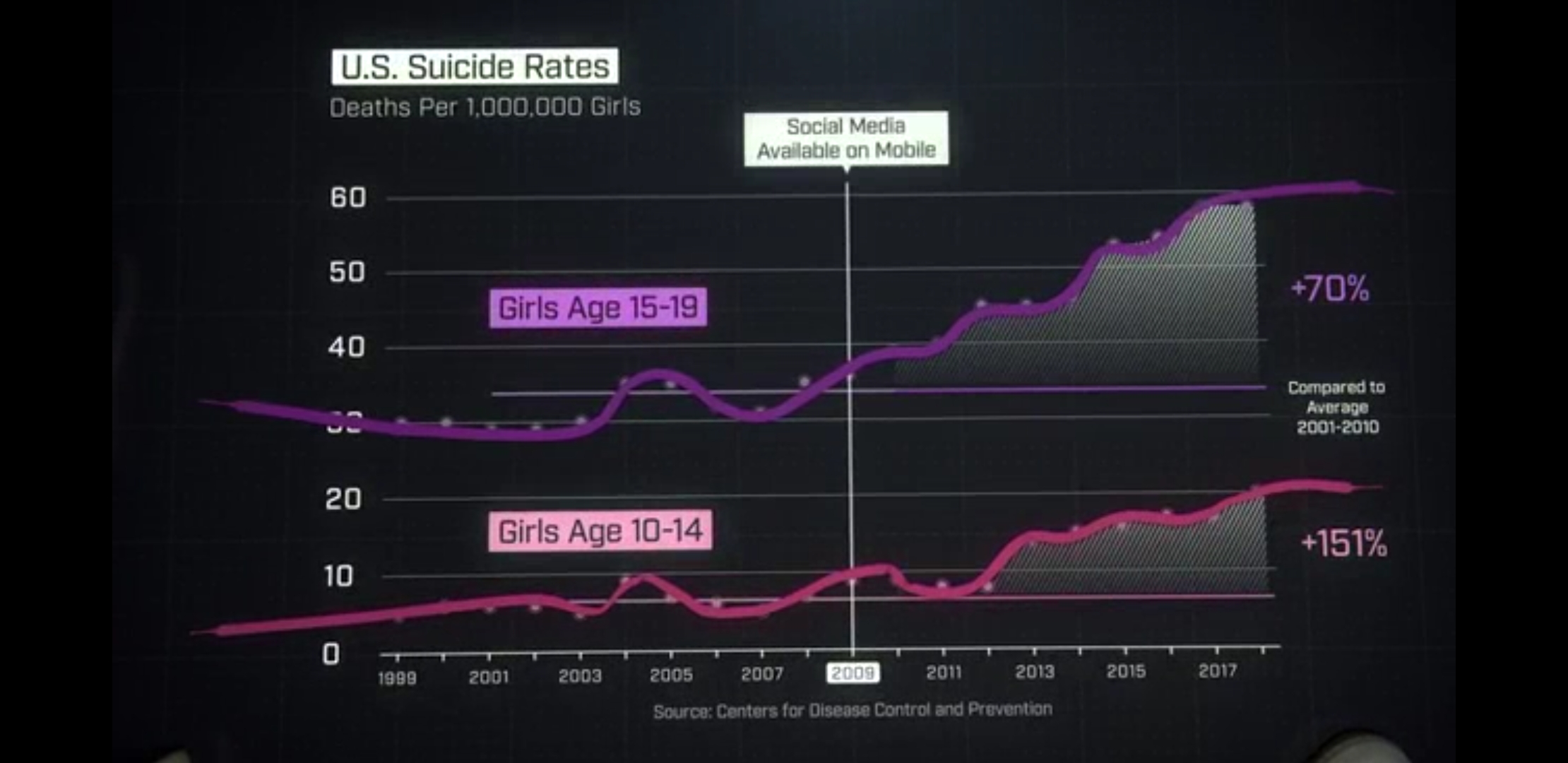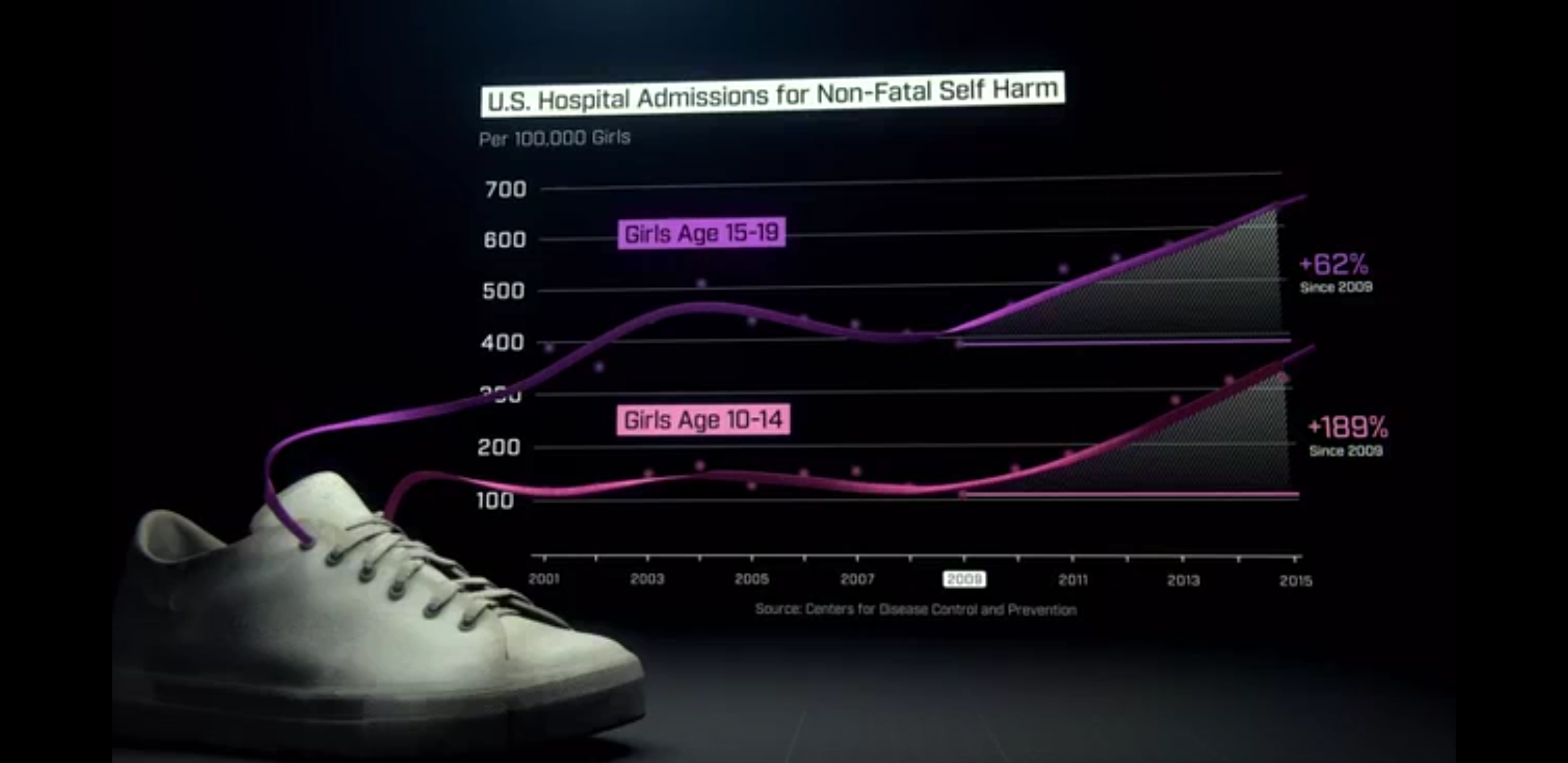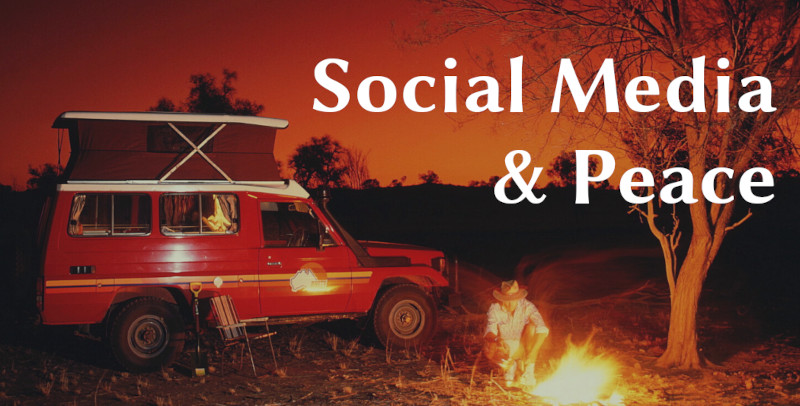Notes :
We love peace, and we love people, and we want to see and know peace in ourselves, in our communities, and in the world. Today, almost everyone has a Social Media account, and there’s some ways that effects our peace that we need to talk about. So we’re going to talk about that today!
Question: How do Facebook, Instagram, Twitter, Reddit and other platforms make their money?
Answer: They show us ads. They’re actively incentivised to make us spend as much time on their platforms as possible
This has the effect of undermining our peace in several notable ways.
Internal, Personal Peace
- AI Model of you, to predict what you’ll do, and to manipulate you – ever feel like it hears you?
- It’s designed to be addictive… and it is!
- “Addiction is a condition in which a person engages in use of a substance or in a behavior for which the rewarding effects provide a compelling incentive to repeatedly pursue the behavior despite detrimental consequences.”
- 16+ hours per week on average. Much more among young people
- Feeling like everyone else is doing better than us.
- Depression, Anxiety, etc.
- “The number of teenage girls in the US who have been admitted to the hospital because of cutting or harming themselves was pretty stable until 2010-2011. But then after that it starts going way up. Increase in 62% in older teen girls, and up 189% in pre-teen girls” ~ Stats from U.S. Hospital Admissions for Non-Fatal Self Harm, quote from Jonathan Haidt in the Netflix Documentary The Social Dilemma
- +70% increase in older female teen (15-19) suicides, and 151% increase in younger female teens. CDC Stats


- Some people feel like they’re a failure or mentally weak because they keep getting sucked in. – I felt that way a lot, like when I would go to check one account, and spend 2 hours scrolling.
Here’s what you need to remember: when you’re using Instagram, or Facebook, or any of these platforms, it’s not a fair fight. On one side there’s you holding your smartphone, but on the other side of your screen there are thousands of the smartest software developers, neuroscientists, and psychologists in the world, using the most advanced research and some of the most powerful super computers in the world with one purpose: keep you sucked into their app for as long as possible, so they can show you more ads and make more money off of your attention.
That’s not a fair fight.
- Lots of other stories – my friends, whom I love and are wonderful, but whom it’s so easy to get in arguments with, or get jealous of, or to despise because of what they’re posting on social media…
- The people you see on Social Media are different when they’re sitting in front of you. And you and I are the same way.
Our relational peace
- If you type “Climate Change is…” into Google….
- We don’t have a shared reality anymore. Everyone has their own world, largely designed not for their good, but to make money for some billionaires
- Red Feed, Blue Feed
- When someone around you does something that doesn’t make any sense to you, it’s probably because they haven’t seen what you’ve seen, haven’t lived what you’ve lived.
- Almost everyone responds reasonably, according to the world they’re presented with. … Including the people you hate.
- Nobodies’ SM experience is the same. We have billions of people who live in a completely unique world, with facts and posts that are shown to them to make them engage longer with SM.
- BLM Example
Societal Peace
- Ultra-polarization – people have been getting more and more extreme in their opinions since social media came on the scene
- Fake News Spreads 6x faster
- Countries, elections, and massive groups of people,can be manipulated, deceived, and/or swayed, sometimes for the same price as a used car
Pause and Reflect
Social Media demonstrably challenges our:
- Personal Peace,
- Relational Peace
- National & International Peace
If we care about peace in our world today, we need to have a response to social media.
What do we do?
Start from the ground up
We need to know who we are. We need to know who we were created to be.
Who do you want to be? How do you want your Relationships to be? What kind of world do you want to live in?
In assessing our relationship with SM, We need to start by having solid answers about what our core values are
-
- What is most important to you?
- What do you want your life to be about?
- You have limited time and attention. What do you want to be spending them on?
Then, after we clearly and specifically defining our core values, we assess our technology and the apps in our lives, and see if they actually provides significant and measurable benefit towards those core values, and doesn’t impair your other values in the process.
Does it truly bring you closer to the life you want to create? or push you further away?
Our goal shouldn’t be to use the services that maybe get some benefit. Instead, we should only let a technology into our lives in the event it actually provides a ton of value to those things we care about, and also doesn’t take away from the things we care about.
What is important to you? What are your core values? What matters most to you in the world? Take time to think about that.
Solidify them. Write them down.
Then, think about, do Instagram, or Twitter, or whatever other SM platform you’re on actually add to those things?
Sometimes they do. Hasan with his book/NGO, networking, jobs.
Often, they don’t very much at all.
Usually, if they do, they come with a lot of downsides – like, relationships damaged, even though its meant to be a platform of connection; or Fake News even though we want truthful and helpful updates; or distraction, even though we want to use the platforms for productivity instead of entertainment.
Brian Lunduke – Twitter & video view counts
Nathan – Twitter Jobs
3 Options for response
1) Re-assess / Restrict
Take steps to re-assess how you currently use social media. If you find there are elements of it that do fit into your core values, you’ll probably find there’s a LOT that doesn’t. I doubt higher levels of anxiety, getting addicted to scrolling, and being deceived by fake news are things that fit into your core values… But there might be some things that are extremely valuable that SM adds to your life.
If there is value to you on it:
Rules:
a) Be a Truth Teller
-
- we have a responsibility to not share lies, fake news, or false information
b) Listen, ask more questions, respond with the knowledge that you might be wrong
c) Don’t aim to win. Aim to understand
d) Don’t be owned by social media
-
- Do what you need to do to avoid the most addictive features, while still getting value from it.
- Don’t use it on your phone
-
Do use plug-ins to make your experience the way you want it. Play by your rules, instead of social media companies’ rules
- Facebook Newsfeed Eradicator
- Improve YouTube! plug-in
- UnDistracted
- Freedom, BlockSite, Stay Focused (Android), etc. – For specific times
- Simple lifestyle stuff: don’t sleep with your phone in your room, turn airplane mode on at night (or, at least internet off),
Take steps to make sure you can’t spend more time on social media than you want, or that you don’t get exposed to what you don’t want to on the platform.
2) Remove
-
-
My deletion journey:
- I didn’t like that it was wrecking my thinking-capacity, friendships, time/attention etc.
-
It gave me some value I cared about
- Hear from people I love around the world
- Love writing, Share things I’d written/created
- News around the world
-
but it violated my core values in ways I couldn’t justify, and there were other tools to do it better.
- It’s better to have a video call with someone than a comment on a photo.
- I have more freedom to create how I want from my own website and email list than I do on SM
- Journalists on news sites are better than news on SM
- My friends that realized that the whole thing was incompatible with their core values. Love God, Love People; – Got rid of it all – Internet distracted them from that.
-
My deletion journey:
What is most important to you? Do your social media accounts actually fit into that?
3) Reform
Something will come after Facebook, and after Instagram. Whatever replaces it doesn’t have to be as exploitive as the current systems are. It’ll take dreaming, and hard-work, but I think there is a version of online community that is actually healthy, makes people’s lives better, and doesn’t suck our attention.
10 Trillion (10^13) hours of human attention – What could we accomplish if that time was instead put towards curing cancer, ending poverty, stopping climate change, or ending war?
Tristan Harris on Human Technology
“Where you spend your attention is where you spend your life.” ~ James Clear
Further Reading / Resources:
Here’s some resources that I drew heavily from in the talk:
- Digital Minimalism by Cal Newport – I shared in the talk the question of what we really care about?. What are our core values?. I drew many of those ideas from Cal Newport. His book Digital Minimalism is a great book for exploring what a purposful relationship with technology can look like for us personally.
- The Social Dilemma (Trailer) – A great documentary highlighting many of the issues we face personally, socially, and societally in the area of Social Media, and other Attention Economy services. The documentary is, unfortunately, only available on Netflix. Many people rightfully have critques towards Netflix and their practices. However,this movie is one nugget that I think is worth watching. If, like me, you don’t have a Netflix account, I personally got enough value out of this movie that I think it’s worth signing up for the service for a month, watching this movie and The Great Hack (below), and then cancelling the account when you’re done.
- The Great Hack – Another Netflix documentary, this one specifically about Facebook, Brexit, the 2016 US Presidential election, and
- How to Break Up with your Phone – Similar to Digital Minimalism, How to Break Up with your Phone draws from the research we’re learning about how Social Media impacts individuals, relationships, and society, and offers a path to a healthier relationship with technology.
